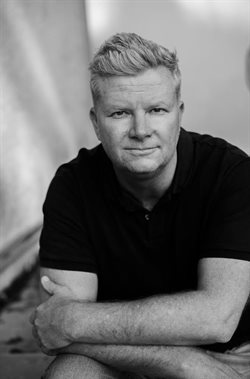The boom of the self-help industry over the past 30-40 years has seen several fads come and go (not least in the world of dieting - just think back to Adkins, keto, paleo, and potato-a-day…). But whether financial, health, or “how to be your own CEO in just 30 days,” these guides to living and being the best versions of ourselves are pretty much now an accepted part of our culture. Despite all the charlatans who prey on the eagerly optimistic, the general attitude to self-improvement has had some very positive spillovers for society as a whole.

Image: Supplied by Sensor Networks. To access their smart tech solutions to reduce electricity consumption in your home, visit www.sensornetworks.co.za Case in point: consider the term “metrosexual.” In the late 90s and early 00s, the term was - as the meme goes - applied to men who had a basic sense of hygiene and style. Thankfully, the term has disappeared - but not because there are no more “metrosexuals,” no; instead, that archetype of masculinity is now widely accepted and seen as part of the milieu, making the need for a reductive and slightly inappropriate label all but irrelevant.

Mark Allewell
Part of this acceptance and social evolution is, thanks to the self-help space, a dawning awareness of the importance of mental health and the growing acceptance that it is okay to ask for help. We are now, more than ever before, ready to accept others’ assistance in improving our mental health and excising the pressure that picks away at our happiness. Even if you are not actively engaged in any traditional means of improving your own headspace, we are, as a collective, less accepting of acts that negatively affect our emotional and mental wellbeing. We are now in the business of safeguarding our sanity as much as repairing it. Or at least most of us are.
Gaslighting by candlelight
If we personify the institutions governing our daily lives - viewing them as an everyday soul trying to get by, just like us - we can ask ourselves: would this person be welcome in my home, in the office, in positions of power? Like people, institutions have their flaws, but, just like people, how they deal with their flaws is inherently more important than the problematic behavior itself. If Eskom were a person, they would very clearly be a social pariah - the power crisis is unacceptable, but the lack of responsibility taken and the tone-deaf act of playing the victim would infuriate and sicken even the most die-hard of sycophants.
But, they are not alone. Recently, after a much-needed reprieve from loadshedding, several commentators have swooped in for cheap views by proclaiming that “we should be thankful that we have not had loadshedding,” even if the problem still lurks in the background. If the wave of mental health promotion has taught us anything, it’s that we should not let others dictate to us how we should feel. Being told to be grateful for something that should not be in question is akin to expecting someone to be thankful for the fact that they are not currently being punched in the face. Yes, I am very glad that I am not being assaulted right now, but I am not grateful for this lack of assault. Why? Because that would normalise the act and make it somehow acceptable.
Anger is an energy
Luckily, this is the very same ethos that many South Africans tend to have - we are not grateful when the lights are on because we will not normalise living in a country with a failing power grid. Just as we can recognise that our emotions should not control us, we also understand that our emotions can be both positive and negative. The simmering indignation we feel when the power goes off after a long day of work has since been harnessed by the private sector and its citizens. That same anger has now driven us to find answers.
Thankfully, a lot of innovation and proactive solutions have been born out of the frustrated miasma lingering above our country.
The tacit acknowledgement by experts in the field of the role to be played by the private sector has been refreshing and somewhat cathartic. Whether large or small, efforts are being made by South Africans to fill in the gaps concerning our power generation and the management of our national grid.
From the significant uptake in solar installation by households to the financing of alternative power generation capacity by larger multinationals, we have shown that we are not to be treated as bystanders; we are all capable of contributing to finding the answer to our woes. On the other end of the chain, companies are also targeting demand-side management, opening up to the idea that both sides need to work towards a common goal. The use of smart geyser sensors, energy-efficient light-bulbs, and innovative solutions to clean our pools offers a sign of the public taking collective responsibility for our own well-being by harnessing the dynamism of the private sector, which may be lacking among parastatals and government agencies.
Among one of the more popular edicts to come out of the era of self-help (and with significant help from internet discussions) is the popularisation of Hanlon’s razor; that is, the notion that one should never attribute to malice that which is adequately explained by incompetence. If our government were a person, they would be flawed (as any of us are), and their actions and inactions should receive the same level of charity we afford others, à la Hanlon’s razor. But they are also not above help - and that is what is being done; we are helping them to help us. If that does not represent the true spirit of self-help, and the resilience of the South African people, then nothing will.












































